MHA (Master of Hospital Administration)
Kolkata | Durgapur
2 years
PG
MAKAUT
Graduates
To complete admission online, follow the steps below:
Healthcare has become one of India’s largest sectors – both in terms of revenue and employment. The Indian healthcare sector is growing at a brisk pace due to its strengthening coverage, services and increasing expenditure by public as well as private players. Upon graduation, individuals can explore employment prospects in

Manipal Hospital

Rainbow Children's Hospital

The Mission Hospital

AIG Hospital

Bhagirathi Neotia Hospital
Core curriculum details of MHA (Master of Hospital Administration) are as follows –
Kolkata, known for its rich history, culture, and educational opportunities, is an ideal destination for pursuing a B.Sc. in Psychology course in K...
Read MoreThe landscape of journalism has undergone a seismic shift in recent years. Traditional media, like newspapers, television, and radio, once the pill...
Read MoreWith digital cinema taking over, the film industry has moved from using film to using digital technology for every step, from filming to editing an...
Read MoreMeet our faculty members
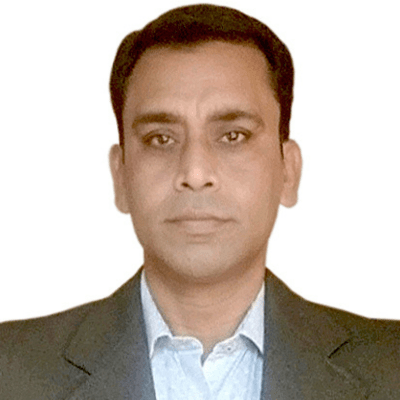
Department of Business Studies
Kolkata
FINANCE & ACCOUNTS
RESEARCH
Ph.D., FINANCE, VIDYASAGAR UNIVERSITY
MBA, FINANCE, IGNOU
B.COM, COMMERCE, CU
AKS UNIVERSITY
22 Years

Department of Business Studies
Durgapur
Principles of Management, Consumer Behavior, Advertising, Marketing Management, Entrepreneurship, Stress Management & Disaster Management
PhD - Management, Chandra Mohan Jha University
M.Phil. - Management, Periyar University & MBA (HR & Marketing), Gurukul Kangri University
B.A., Garhwal University
Asian School of Media Studies (ASMS) Film City, Noida, Professor & Director
19 Years

Department of Business Studies
Durgapur
Financial Accounting, Hotel Accounting, Financial management, Taxation, Financial Management & risk Analysis
Finance & Accounts, General management
Ph.D.Management,
M.Com,Commerce, Vinoba Bhave University,
B.Com(H), University of Burdwan
The PAS,Bokaro, Asst Teacher,NA, NOV2007
21 Years

Department of Healthcare Management
Durgapur
Health Economics (UG, PG), Principles of Management, Materials Management, Hospital Inventory Management, Principles of Management and Organizational Behavior, Public Relations, Marketing and Strategic Management, Healthcare Marketing,
Research in Micro and Macro Economics, Econometrics, Publications in National and International Journals, Attending Workshops, FDP, MDP, attending and Presenting Papers in Conferences.
Ph.D (Economics), Vidyasagar University,
M.Sc Economics, University of Calcutta, MBA, PGDMM
B.Sc Hons. in Economics, University of Calcutta,
Institute of Guide and Success - Management Institute
17 Years

Department of Business Studies
Kolkata
Managerial Economics, Business Environment, Microeconomics, Research Methods
Economics
PhD, Economics, Vidyasagar university,
MSc Economics, Calcutta University
BSc( Hons) ;Economics ; Calcutta University
The Princeton Review
17.5 Years
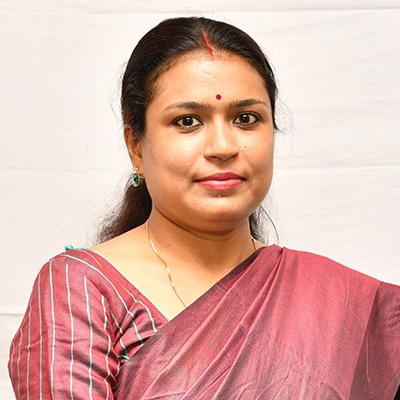
Department of Business Studies
Durgapur
Economics, Research Methodology, Environmental Science, Statistics
Economics, Management, Women Empowerment,
PhD in Economics , from The University of Burdwan
M.A Economics, The University of Burdwan
B.A Economics (Honors), The University of Burdwan,
ICFAI National College, Burdwan, (From February 2007 to February 2009)
17 Years

Department of Hospital Management
Durgapur
Health Insurance, Epidemiology, Concepts of Digital Health, Case Work, Minor Project
Public Health, Health and Society, Gender studies, Climate studies, Analytics
MPH, Public Health, The West Bengal University of Health Sciences,
BHMS, Homoeopathy, The West Bengal University of Health Sciences,
Central Council for Research in Homoeopathy, JRF (Hom), February 2021, September 2021
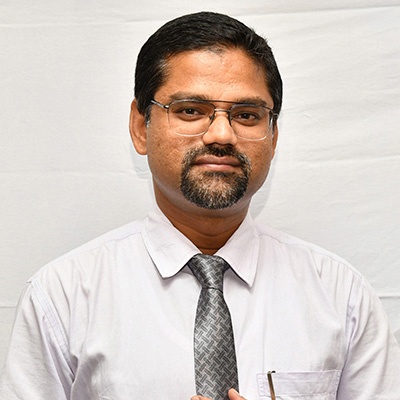
Department of Business Studies
Durgapur
Marketing Management, Research Methodology, Consumer Behaviour, Service Marketing, Digital Marketing
PhD - Management, Maulana Azad National Urdu University
(i) M.Phil (ii) MBA, (i) & (ii) MANUU
B. Com. (Hons.), Vinoba Bhave University
BCET, Assistant Professor
7 Years
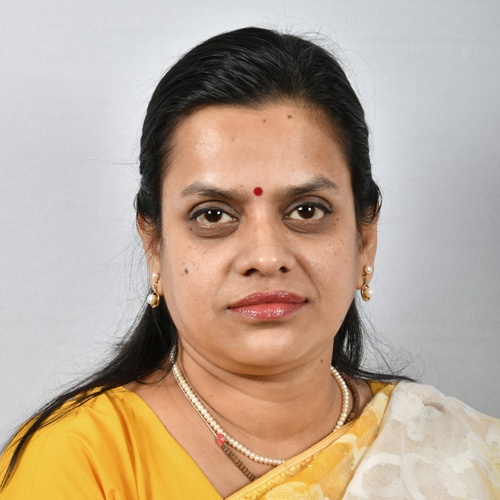
Department of Management Studies
Kolkata
Consumer Behavior, Advertising and Sales Promotion, Marketing Research, Marketing Management
PhD (Management), Calcutta University, 2022
MBA (Marketing), WBUT, 2004
B.Sc (Eco-H, Math-Stat), Vidyasagar University, University Rank Holder
Globsyn Business School, Kolkata, Faculty
18 Years
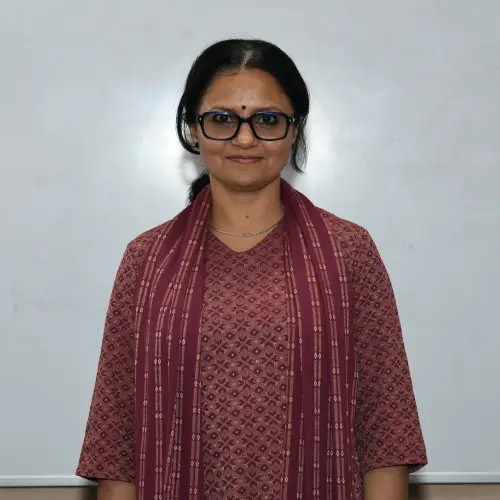
Department of Management Studies
Durgapur
Principles of Management, OB and Business Ethics
Organizational excellence, talent management, OB, Innovation
PhD in Management
MBA, Institute for Technology and Management-Mumbai
BA- Sociology (H) Delhi University,
Krupanidhi Group of Institutions, Bangalore, Associate Professor,
13 Years

Department of Management Studies
HR and Corporate Strategy
HR , TECHNOLOGY
PGDBM
MBA from XLRI -Jamshedpur , 1997 - 2000
BE ( Mechanical Engineering) Jadavpur University 1980 - 1984
IBM , Global Learning Manager , Oct 2002 - Dec 2020
20 Years

Department of Management Studies
Kolkata
Industrial Relations, Labour Laws
PhD - Arts, Netaji Subhas Open University
MBA, specialization in HR, Calcutta University
BA(honours), Calcutta University
ICFAI Business School, Kolkata
19 Years

Department of Business Studies
Kolkata
Entrepreneurship, Principles of Management
Management
PhD in Management from NIT Durgapur
D.Litt in Management from Tumkur University (Government of Karnataka)
Master in Business Administration (GM)
Haldia Institute of Management, Director & Professor,
17 Years

Department of Healthcare Management
Durgapur
Hospital Operations Management, Public Health, Epidemiology, Support and Utility, Hospital Planning, Hospital Overview.
Public Health and Epidemiology
MBA Healthcare and Hospital Management, IISWBM
B.Sc. Anthropology, , University of Calcutta
1.1 Years
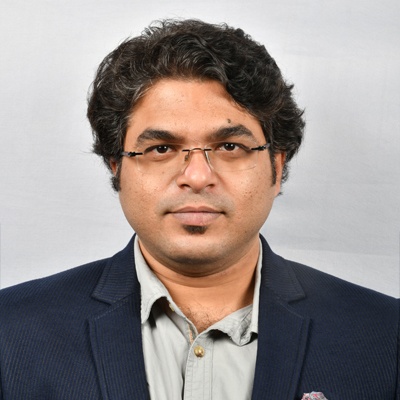
Department of Business Studies
Kolkata
Supply Chain Analytics, Introduction to Supply Chain; Supply Chain and Logistics Management; Excel - Basics and Advanced(Value Added Courses)
Supply Chain Management; Logistics Management; Operations Management; Supply chain analytics
MTech, Industrial Management; ISM Dhanbad;
BTech, Production Engineering; WBUT
BECIL
3 Years
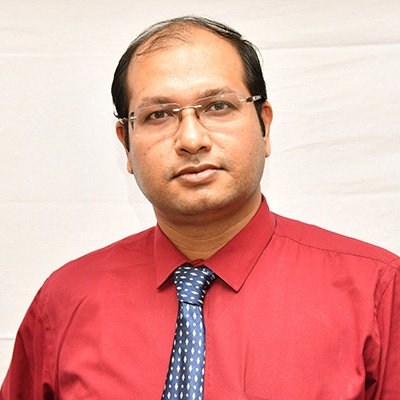
Department of Business Studies
Durgapur
Business Communication, Compensation and Benefit Management, Cross Cultural Management, Environment Studies, Human Resource Management, Management Training and Conditioning, Manpower Planning - Recruitment and Selection, Organizational Behavior, Organizational Design, Performance Management Systems, Psychology of Sports, Entrepreneurship Principles, Spectator Management, Spectator Management and Funding in Sports, Basics of Assessment in Psychology, Principles of Management
Human Resource Management
Pursuing PhD in Human Resource Management from Adamas University
MBA, International School of Business, IK Gujral Punjab Technical University
BE - Electronics and Tele Communication Engineering, Nagpur University
RVS College of Engineering and Technology
12.6 Years
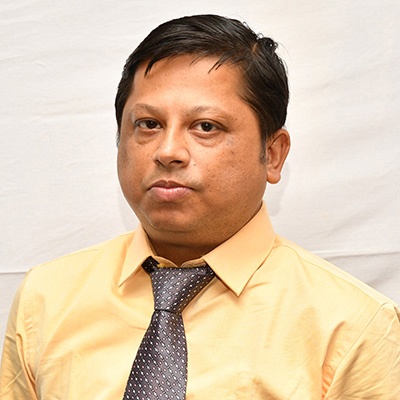
Department of Business Studies
Durgapur
BBA, MBA
Principles of Management, Management Information System, Production Management
MBA, Bengal Engineering & Science University
B.Tech - CSE, WBUT
SBIHM School of Management, Professor
12 Years
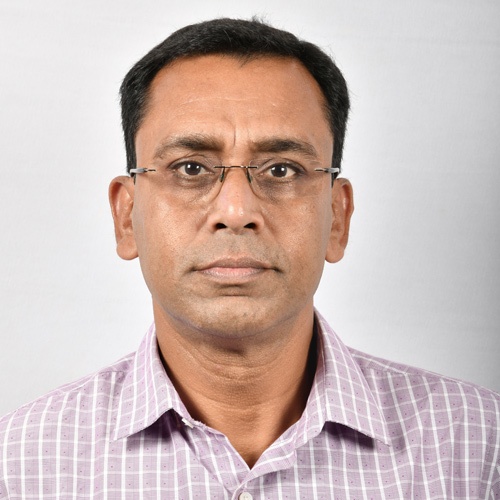
Department of Business Studies
Kolkata
Finance & Accounting
Pursuing
MBA, IGNOU
B. Com (Hons), Calcutta University
AKS University, MP
22+ Years

Department of Management Studies
Durgapur
Sports Training and Conditioning, Basics of Sports Medicine and nutrition
Sports Marketing and promotion, Sports training, Sports psychology
Pursuing
M.P.Ed.
B.P.Ed.
Bharati Vidyapeeth Deemed to be University, Pune
4 Years
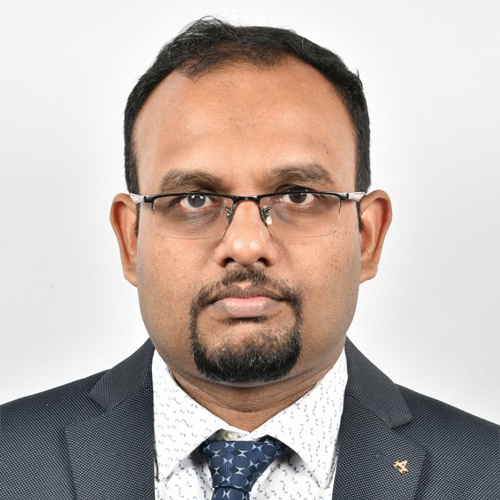
Department of Healthcare Management
Durgapur
Hospital Management, Healthcare Marketing, Public Health, Epidemiology, Hospital Facility, Design and Management, Health Informatics and Corporate Governance
Corporate Governance, Health IT, Hospital Business, Market Research
MBA in Hospital Administration, Full Time Regular MK University,
Health Informatics/IT Regular Manipal Academy of Higher Education, Manipal, Karnataka
Cornish Healthcare Ltd, Cochin, India
5 Years in Teaching and 8 Years in Corporate. Years

Department of Business Studies
Durgapur
BBA, BTECH, BBA(HOSPITAL MANAGEMENT), BCA
INDUSTRIAL MANAGEMENT,SUPPLY CHAIN MANAGEMENT,PRINCIPLES OF MANAGEMENT,ENTREPRENEURSHIP
OPERATIONS MANAGEMENT,INDUSTRIAL MANAGEMENT,SUPPLY CHAIN MANAGEMENT
FULL TIME MBA IN SUPPLY CHAIN MANAGEMENT
BTECH IN ELECTRICAL ENGINEERING
SHYAM METALLICS AND ENERGY LIMITED
2 Years
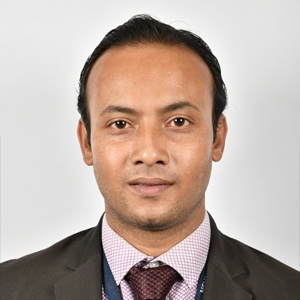
Department of Business Studies
Durgapur
Digital Marketing, Data Analytics, Operations Management, Business Research Methods, Legal and Business Regulatory Environment, Business Environment, Services Marketing, International Marketing.
Services Marketing
Pursuing
MBA (Full Time), National Institute of Technology
B.Sc (Computer Application), Ranchi University,
Presidency University, Bengaluru,
16.2 Years

Department of Healthcare Management
Kolkata
Health Care Marketing, Hospital Planning, Health Insurance, Support and Utility Services
Teaching, Training, Conferences & Workshops
Pursuing
Masters in Hospital Management, Osmania University,
BA (Hons), Magadh University
MV Hospital for Diabetes, General Manager
8 Years

Department of Hospital Management
Durgapur
Quality Assurance in healthcare, Hospital operations Management, Health education and Health communication
Quality assurance in Healthcare
MBA - Hospital Administration, Madurai kamaraj University
Bachelor of Physiotherapy, Integral University, Lucknow
0.2 Years
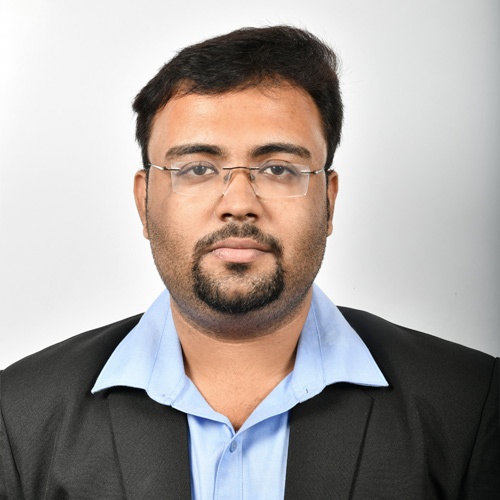
Department of Business Studies
Durgapur
Consumer Behaviour, Marketing Management, Entrepreneurship,Principles of Management,Sales and Distribution management
Use of both traditional and modern method of learning to develop better way of learning to students
Pursuing
MBA( Full Time ) Vidyasagar University 75%
ST.XAVIER'S COLLEGE BURDWAN 53%
BYJU'S LEARNING APP
1.5 Years

Department of Management Studies
Kolkata
Marketing Mgt, Strategic management,Sales & Distribution mgt, Pharma Marketing mgt, Retail management
Corporate Strategy
MBA/Marketing/University of Burdwan
B.Sc/Zoology/University of Calcutta
ICFAI national college
18.3 Years

Department of Business Studies
Durgapur
Entrepreneurship Theory and Practice, Economics for Engineers, Managerial Economics
Human Resource Management, Organizational Behaviour
MBA, SYSTEMS & OPERATIONS MANAGEMENT, UNIVERSITY OF BURDWAN
BA, ECONOMICS(HONS), VISVA BHARATI UNIVERSITY
SBIHM School of Management
20 Years

Department of Business Studies
Kolkata
Technology Management
MS, University of Louisville
BE, Jadavpur University
Goldratt Consulting
10 Years

Department of Business Studies
Kolkata
Marketing Management, Marketing Analytics, Retail Management, Data Analytics Skills for Managers, Research Methodology, Stats LAB
Retail Management
Ph.D., Management, MAKAUT
MBA, Management, MAKAUT
B.Com (H), Accounts Honors, CU,
17.4 Years

Department of Healthcare Management
Durgapur
Support & Utility Services, Medical Records, Human Resource Management
Hospital Operations
MBA in Healthcare Management
Graduate in Economics, Political Science & Sociology
9 Years

Department of Business Studies
Durgapur
Investment Analysis and Portfolio Management, Financial Markets and Services, International Finance, Micro Finance Operations, Indian Securities Market
MBA, WBUT
B. Com. (Hons.), Delhi University
NSHM Knowledge Campus, Assistant Professor
12 Years

Department of Healthcare Management
HOSPITAL OPERATIONS PLANNING( 1st semester) Health & wellness (1st semester) Medical Records Science (3rd Semester) Epidemiological Transitions in Healthcare(5th semester) Support and Utility Services-II (5th semester)
Research work related to public health, waste management, green hospital architectural planning.
MPSM( HEALTHCARE & HOSPITAL MANAGEMENT) IISWBM UNIVERSITY OF CALCUTTA
Bsc in Food & nutrition university of Calcutta
Institute of Management Study
7 Years
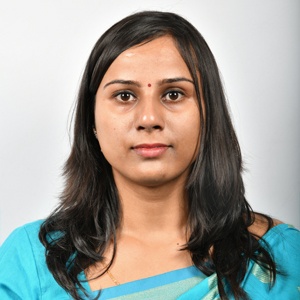
Department of Business Studies
Durgapur
Managerial Economics , Economics for Engineers , Indian Ethos and Business Ethics
Health Economics, Education Economics
Pursuing Ph. D in Economics
MA Economics , Kurukshetra University
B.A.(H) Economics , University of Delhi
K.R. Mangalam University
5 Years

Department of Business Studies
Kolkata
Finance & Accounts, Economics
Finance & Economics
MBA,MSC(Economics). University of Calcutta,
BSC(Economic), University of Calcutta
Pailan College of Management and technology
15 Years
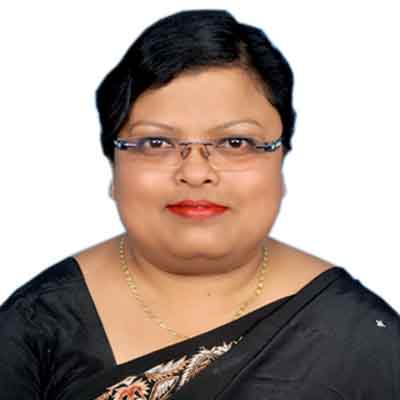
Department of Business Studies
Durgapur
HUMAN RESOURCE MANANGEMENT,ORGANISATIONAL BEHAVIOUR,PSYCHOLOGY,BUSINESS COMMUNICATION,CROSS CULTURAL MANAGEMENT,ORGANISATIONAL DEVELOPMENT,VALUES AND ETHICS,BUSINESS LAW,PRINCIPLES OF MANAGEMENT,ENTREPRENUERSHIP.
HUMAN RESOURCE MANAGEMENT,ORGANISATIONAL BEHAVIOUR,ORGANISATIONAL DEVELOPMENT
1) MBA in HUMAN RESOURCE MANAGEMENT (MAJOR)& MARKETING MANAGEMENT(MINOR)FROM NATIONAL INSTITUTE OF TECHNOLOGY,DURGAPUR 2) MA(DISTANCE FROM 1998-2000) IN ENGLISH FROM BURDWAN UNIVERSITY
FULL TIME B.A IN ENGLISH(HONS) FROM BURDWAN UNIVERSITY FROM (1995-1998) PASSED WITH 52% MARKS
BCETW
15.2 Years
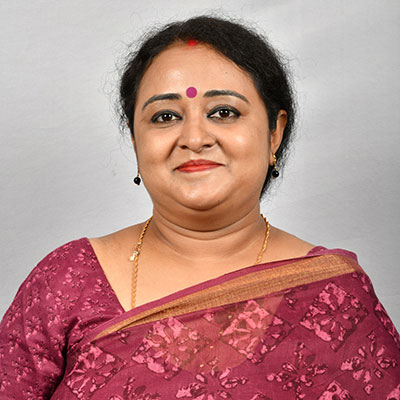
Department of Healthcare Management
Kolkata
QUALITY MANAGEMENT, HEALTH EDUCATION AND HEALTH COMMUNICATION, LEGAL ASPECTS OF HEALTH
Quality Management, Public Health
Post Graduate in Public System Management (Hospital and Health Care Management), IISWBM
B.Com (Hons) , University of Calcutta,
George College
19 Years
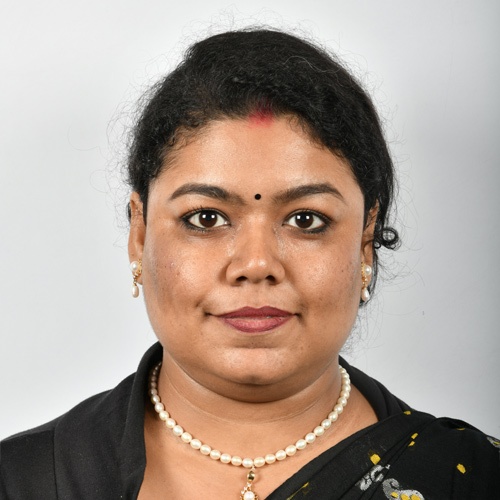
Department of Business Studies
Durgapur
Banking, Finance
Banking, Finance
PGDB
Regular BSC in HAHA
ICICI Bank Ltd
1.5 Years

Department of Hospital Management
Durgapur
Health care services, Legal aspect of health, Introduction to public health, Concepts of digital health
Social work
Master's in Social Welfare
English Honours
Amik Institute of Management Sciences and Technology
2.8 Years
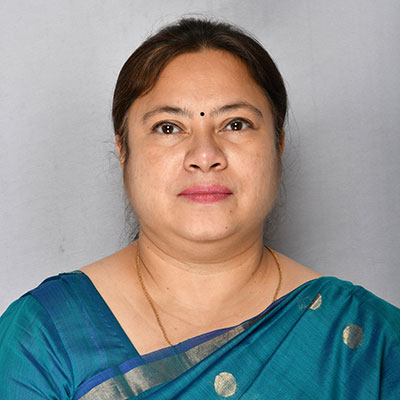
Department of Business Studies
Kolkata
HR Metrics & Analytics, Industrial Relations, HRM, Organisational Behaviour, Principles of Management
Organisational Behaviour, Communication, HRM
Pursuing Ph.D. in Management from MAKAUT, West Bengal
MBA
B.A. (English Honours) Calcutta University
IMT Ghaziabad
22 Years

Professor & Head Centre for Language & Communication